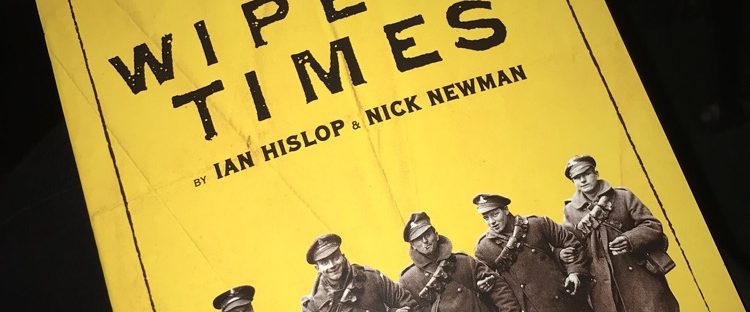‘The Wipers Times’ tells the story of a newspaper from the front line
- ‘The Wipers Times’ is a Watermill Theatre production which retells the true story of a newspaper set up on the front line of WW1
- Written by Nick Newman and Ian Hislop the play follows the journey of Captain Fred Roberts alongside soldiers from the 24th Division after they discovered a printing press in the ruins of Ypres.
Set in the Spring of 1916, ‘The Wipers Times’ tracks Captain Fred Roberts (James Dutton), his right-hand man Lieutenant Pearson (George Kemp) and several soldiers in the 24th Division of the Sherwood Foresters as they travel through trenches in the First World War.
Upon ruins in Ypres – commonly known as ‘Wipers’ by ‘Tommies’ who were unable to pronounce it – they uncover a printing press and thus ‘The Wipers Times’ is born.
Rather than report about the war itself, Roberts and his comrades produce a journal of humour; including poems, spoof advertisements and underlying digs about the high command.
Newman and Hislop made sure to capture that to humour about the life they were living was one of their main requirements for survival out on the front line, however it never fell short of honouring those who had fallen in battle.
The plays sole purpose was to make the audience laugh and almost forget that these soldiers were enduring separation from their families, deaths of friends and ultimately the question of how much longer they themselves would live.
‘The Wipers Times’ made a lot of jokes at journalists’ expense and often referred to ‘The Daily Mail’, its writers, and its lack of accuracy but all was done in a light-hearted manner and provided unanimous laughter for the audience.
Producing 23 issues in total, ‘The Wipers Times’ ran from 1916 until just after the end of the war in 1918, and we see how meaningful producing the newspaper became to Captain Roberts who talked about content rather than war strategy.
Whilst much of the play is centred around the newspaper and the power of laughter – the audience is reminded occasionally about the hardship the soldiers were dealing with. First came Captain Roberts’ admission to hospital after a gas attack, and secondly the death of Henderson, a fellow writer and soldier on the front line of the Battle of the Somme.
Surprisingly to myself and the audience, when the troop learn that the war is over, instead of celebration, there is a silence, a moment of sadness and realisation that ‘The Wipers Times’ and those they have spent their years with will no longer be there.
In the first and penultimate scenes of the production we see Captain Roberts interviewing for a job as a journalist to which he is subsequently told that humour rather than fact about the war is not what they want.
The final scene features only Captain Roberts and Lieutenant Pearson centre stage as they tell us what happened to their ‘characters’ after the war – an homage to the real soldiers who wrote the paper – which leaves the audience feeling a sense of solidarity between the pair and ends the play on a respectful and ‘real’ note.
Both Newman and Hislop have resurrected the story of ‘The Wipers Times’ and captured a different side to the war than that we see on documentaries and in films. The duo has shown the importance of friendship, laughter and foremost the importance of ‘The Wipers Times’ to the comrades.
An outstanding performance from the cast and their ability to bring the story to life as if it were their own, should be credited as a time that history was brought to the stage.
The play continues its tour around the UK for another three weeks, ending at the Chichester Festival Theatre on the 25th November.


